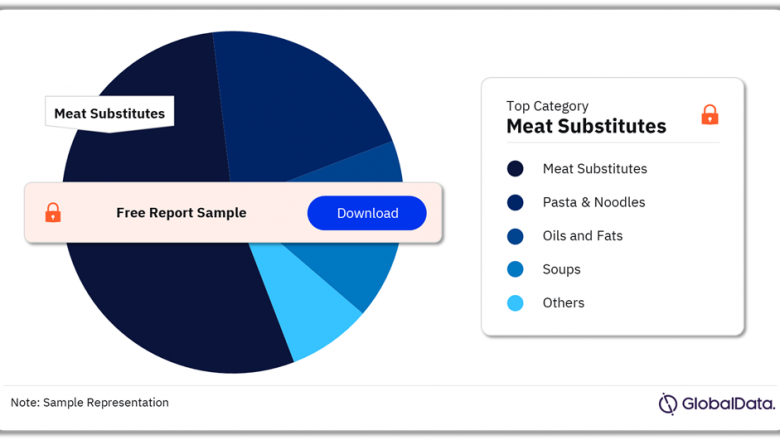163
views
views
The food industry is home to several influential companies driving innovation across various trends.
The food industry is home to several influential companies driving innovation across various trends.

Buy the Full Report for More Category-wise Food Industry Insights, Download a Free Report Sample
Below is a competitive analysis highlighting key players leading the way in these top trends.
1. Sustainability and Eco-Friendly Practices
- Key Players:
- Unilever: Known for its Sustainable Living Plan, incorporating eco-friendly practices across brands like Knorr and Ben & Jerry's.
- Nestlé: Committed to achieving net-zero emissions and reducing plastic use, with initiatives like recyclable packaging.
- Danone: Focused on carbon-neutral certification and regenerative agriculture through brands like Evian and Activia.
- Market Share Insights:
- Sustainability-focused brands are experiencing double-digit growth as consumers increasingly choose eco-conscious products.
2. Plant-Based and Alternative Proteins
- Key Players:
- Beyond Meat and Impossible Foods: Leaders in plant-based meats, expanding partnerships with major chains like McDonald’s and Burger King.
- Oatly: A key player in plant-based dairy, capturing significant market share in oat milk.
- Nestlé: Expanded into plant-based products under brands like Sweet Earth and Garden Gourmet.
- Market Share Insights:
- The plant-based food market is projected to grow at a CAGR of over 10% from 2023 to 2030, with Beyond Meat holding a strong market position.
3. Personalized Nutrition
- Key Players:
- Nestlé Health Science: Offers customized nutrition solutions through brands like Persona Nutrition.
- Herbalife Nutrition: Provides tailored diet plans and wellness products.
- DSM-Firmenich: Innovates in personalized supplements and nutritional solutions.
- Market Share Insights:
- The personalized nutrition market was valued at $14.6 billion in 2023 and is expected to grow as consumer interest in health optimization rises.
4. Technological Integration
- Key Players:
- IBM: Drives blockchain adoption for food traceability with its Food Trust platform.
- Tyson Foods: Utilizes AI for supply chain optimization and demand forecasting.
- Blue Apron: Leverages data analytics for personalized meal kit recommendations.
- Market Share Insights:
- Blockchain in food traceability is expected to grow at a CAGR of 50.2% through 2027, with companies like IBM taking the lead.
5. Ethical Sourcing and Transparency
- Key Players:
- Starbucks: Known for its ethical coffee sourcing practices through its C.A.F.E. program.
- Mondelēz International: Focuses on sustainable cocoa sourcing via its Cocoa Life program.
- Whole Foods Market (Amazon): A leader in transparent sourcing of organic and locally-produced foods.
- Market Share Insights:
- Ethical sourcing is a major differentiator, with companies investing heavily in certifications and traceability initiatives.
6. Health and Wellness Focus
- Key Players:
- PepsiCo: Expanding its health-focused portfolio with brands like Naked Juice and Quaker Oats.
- Kellogg’s: Growth in functional snacks through its RXBAR and Kashi brands.
- Danone: Dominates probiotic and functional yogurt markets with brands like Activia.
- Market Share Insights:
- Health and wellness foods represent over 20% of the global food and beverage market, with strong growth driven by functional products.
7. Convenience and Ready-to-Eat Options
- Key Players:
- Nestlé: Innovating in frozen and ready-to-eat meals with brands like Stouffer's and Lean Cuisine.
- Blue Apron and HelloFresh: Leaders in meal kit delivery services.
- Conagra Brands: Offers a wide range of frozen meals under brands like Healthy Choice and Banquet.
- Market Share Insights:
- The global ready-to-eat market is projected to grow at a CAGR of 5.6% through 2028, with leading players capturing significant shares.
8. Global Flavors and Fusion Cuisine
- Key Players:
- McCormick & Company: Innovating with spice blends and global flavor solutions.
- Taco Bell (Yum! Brands): Incorporates fusion cuisine into its offerings.
- Nestlé: Diversifying its portfolio with region-specific flavors.
- Market Share Insights:
- The growing interest in international cuisines is driving demand for companies offering authentic and fusion flavors.
9. Food Safety and Hygiene
- Key Players:
- Ecolab: Provides food safety and hygiene solutions for manufacturers and retailers.
- Tyson Foods: Implements AI-driven quality assurance measures.
- Nestlé: Focuses on rigorous quality control across its global supply chain.
- Market Share Insights:
- Investments in food safety technologies are expected to exceed $15 billion by 2025, driven by regulatory compliance and consumer demand.
10. Food Waste Reduction
- Key Players:
- Too Good To Go: A leader in connecting consumers with surplus food.
- Unilever: Upcycles waste into new products like Hellmann’s mayonnaise with surplus aquafaba.
- Tesco: Innovating with food waste reduction initiatives in retail.
- Market Share Insights:
- Upcycling food waste is projected to grow at a CAGR of 6.2%, with startups and large companies leading the charge.
Conclusion
The competitive landscape in the food industry is diverse and dynamic. Market leaders and emerging players alike are leveraging trends to capture consumer loyalty and expand market share. Tracking these players and their innovations is critical for staying ahead in this rapidly changing sector.






















Comments
0 comment